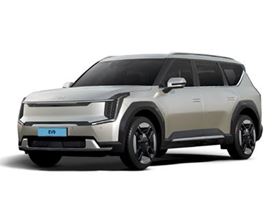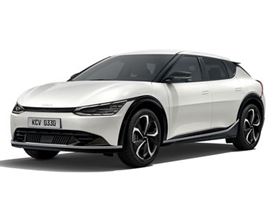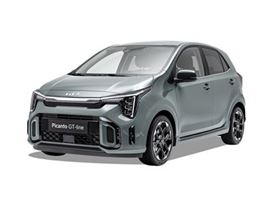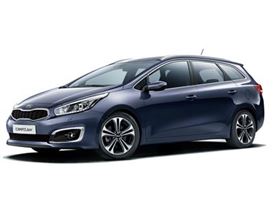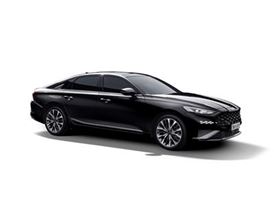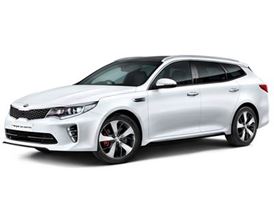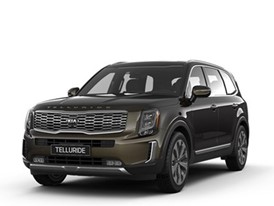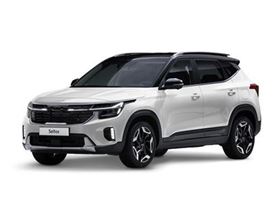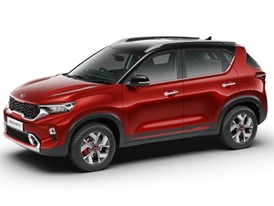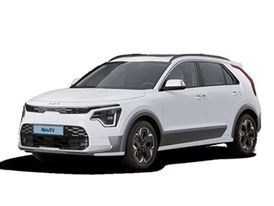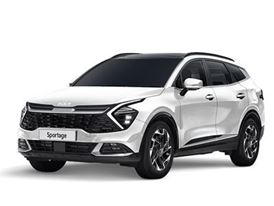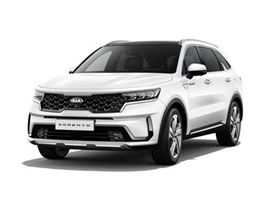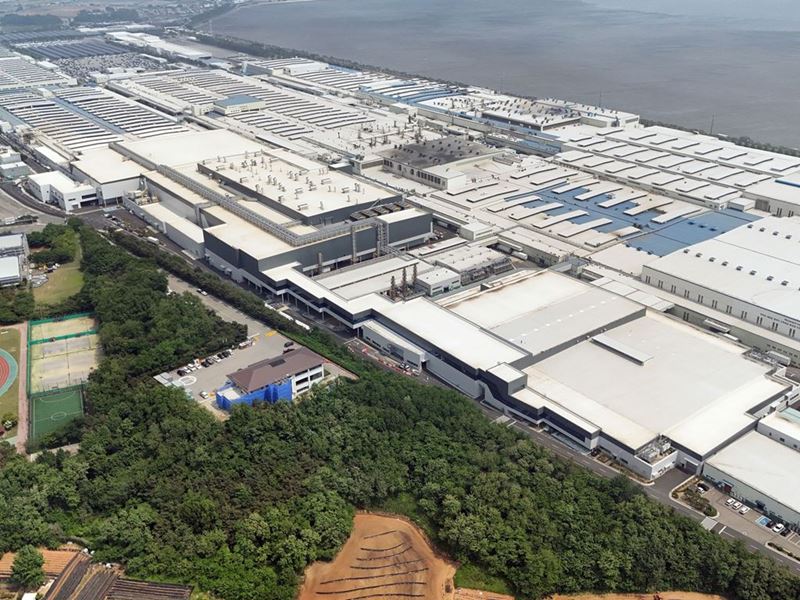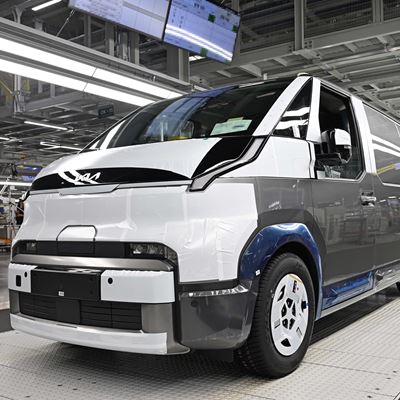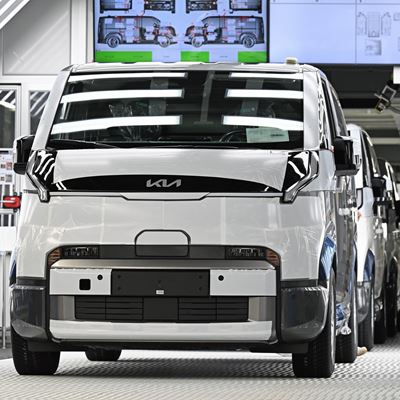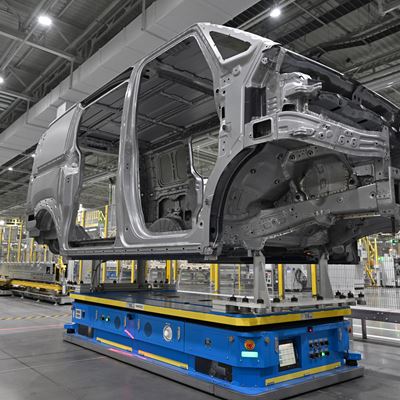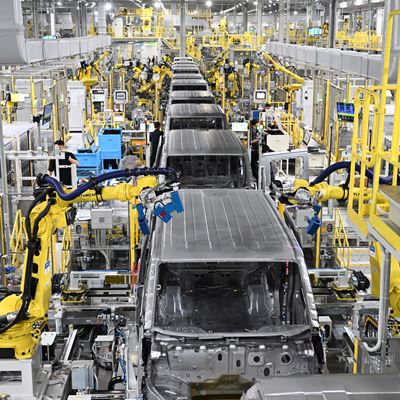Kia Marks Milestone with Establishment of Future PBV Production Hub in Korea
- Kia holds ceremony for completion of Hwaseong EVO Plant East and groundbreaking for EVO Plant West at AutoLand Hwaseong
- Customized vehicle production and eco-friendly technologies adopted, to establish Hyundai Motor Group’s first PBV production hub
- Kia to invest KRW 4 trillion in approximately 297,000 square-meter site to secure combined annual production capacity of 250,000 PBV units
- 100,000 PV5 units to be annually produced at EVO Plant East, and 150,000 PV7 and other PBV units at EVO Plant West
- Kia to establish centralized production base in Korea to support global expansion of its PBV business
- Launch of PBV Conversion Center for co-development of specialized PBV models with strategic partners, fostering a collaborative PBV ecosystem
Kia Corporation today celebrated the completion of its dedicated Platform Beyond Vehicle (PBV) facility, the Hwaseong EVO Plant East and the breaking of ground for the EVO Plant West, a large-scale PBV production facility in Korea.
Combined, Kia will have an annual PBV production capacity of 250,000 units as part of its aim to establish a future PBV production hub.
The ceremony was held at Kia’s AutoLand Hwaseong plant, located in Gyeonggi Province, South Korea. The event was attended by around 200 guests, including Min-seok Kim, Prime Minister of the Republic of Korea; Shinhak Moon, Vice Minister of Trade Industry and Resources (MOTIR) of the Republic of Korea; Dong Yeon Kim, Governor of Gyeonggi Province; Myeong-geun Jeong, Mayor of Hwaseong Special City, and local National Assembly members.
From Hyundai Motor Group (the Group) key executives in attendance included Euisun Chung, Executive Chair of Hyundai Motor Group; Ho Sung Song, Kia President and Global CEO; Sung Kim, President and Head of Hyundai Motor Group Strategic Planning Division; and Chang Song, President and Head of Hyundai Motor Group Advanced Vehicle Planning (AVP) Division.
To support construction of the PBV-dedicated facilities – including the newly completed EVO Plant East and the EVO Plant West, scheduled for operation in 2027 – Kia has secured a site of 296,882 square meters and is investing approximately KRW 4 trillion in infrastructure and research and development.
Leveraging a combined annual capacity of 250,000 units, Kia plans to position the Hwaseong EVO Plant (East and West) as a future strategic hub to drive the global expansion of the company’s PBV business.
Min-seok Kim, Prime Minister of the Republic of Korea, said in his congratulatory remarks, “I am delighted to take part in the completion ceremony for Kia’s Hwaseong EVO Plant East and the groundbreaking ceremony for EVO Plant West. We will usher in a new era of innovation in future mobility together with the automotive industry, embracing new challenges including electrification, autonomous driving, and AI.”
Ho Sung Song, Kia President and Global CEO said, “Kia is leveraging the electrification of light commercial vehicles as a key opportunity to position PBVs as a core future business. As we continue our journey toward sustainable future mobility, Kia remains committed to becoming a trusted partner in building a better future for Korea — and for humanity as a whole.”
Hwaseong EVO Plant Integrates Cutting-Edge Manufacturing Technologies
The name ‘EVO Plant’ combines ‘Evolution’ and ‘Plant’, reflecting Kia’s commitment to pursuing evolution and innovation, and its ambition to become a brand that leads the new mobility environment.
Hwaseong EVO Plant applies a wide range of future-oriented manufacturing technologies and is designed to minimize carbon footprint. The facility emphasizes automation, sustainability, and a human-centric environment, with each process integrating features that reflect these priorities.
The EVO Plant will also apply Hyundai Motor and Kia’s E-FOREST smart factory brand to enable real-time operation and quality control.
In the body shop, a smart logistics system has been implemented through the integration of automated guided vehicles (AGVs) and other advanced technologies.
The paint shop operates dry booths that reduce the impact of controlled substances, making the EVO Plant a low-carbon sustainable facility.
In the final assembly shop, Kia has created a human-centric environment based on advanced automation technologies. The facility will feature specification guidance monitors to prevent operational issues, automation of labor-intensive processes, such as heavy component installation, and low-noise equipment, contributing to a human-centric environment.
Additionally, a flexible production process has been adopted by combining Kia’s mass-production conveyor system with a cell-based production process, which enables simultaneous manufacturing of different mobility types.
Annual Production Capacity of 250,000 Units and Conversion Center Operation
The newly completed EVO Plant East is a dedicated PBV facility built on a 98,433 square-meter site, with an annual production capacity of 100,000 units for Kia’s PV5 mid-size PBV, including the Passenger, Cargo, Chassis Cab, and Wheelchair Accessible Vehicle (WAV) models.
EVO Plant West will be built on a 136,671 square-meter site, securing an annual production capacity of 150,000 units for Kia’s upcoming large-size PBV models, including the PV7. Once both EVO Plant East and West are fully operational, Kia will establish a full PBV lineup with an annual capacity of 250,000 units.
Kia is also launching its dedicated PBV Conversion Center in collaboration with strategic partners to develop specialized PBV models. Built on a 63,728 square-meter site, the Conversion Center will produce a wide range of customized models based on Kia’s first PBV model, the PV5, including open-bed trucks, box vans, and camping vehicles.
The center will also develop and produce additional conversion models, based on upcoming PBVs, such as the PV7. It will serve as a strategic base for the expansion of Kia’s PBV business, while fostering a sustainable PBV ecosystem through close collaboration with partner companies.
Kia also plans to accelerate its RE100 initiative by investing in a 50 MW solar power generation facility within AutoLand Hwaseong.
Once EVO Plant East, EVO Plant West, and the Conversion Center are fully operational, Kia will have established a comprehensive PBV hub capable of producing its entire PBV lineup.
To establish a dominant position in the PBV sector, Kia's strategic focus is on five key areas: Product, Manufacturing, Solutions, Services, and Channels.
By reinforcing its global EV leadership and expanding its PBV business across these pillars, Kia is committed to delivering sustainable and innovative solutions that meet the evolving needs of global customers – in line with its brand vision to become a Sustainable Mobility Solutions Provider.
MEDIA
PRESS RELEASE DOWNLOAD
MORE FROM Global News
-
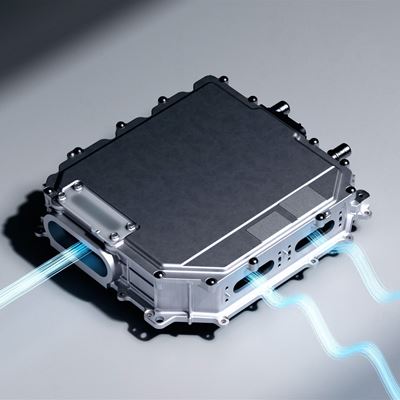


(Editorial) Innovation in Motion: The Story Behind Hyundai Motor Group’s 2-Stage Motor System
-
Hyundai Motor Group and Pyeongtaek City Collaborate to Advance Carbon-Neutral Hydrogen Port Development
-



Kia Unveils Disney, Marvel, Pixar, Star Wars™ and National Geographic Display Themes
-
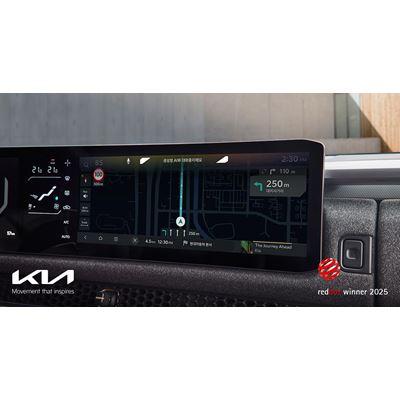


Kia claims five accolades at prestigious ‘Red Dot Award: Brands & Communication Design 2025’
